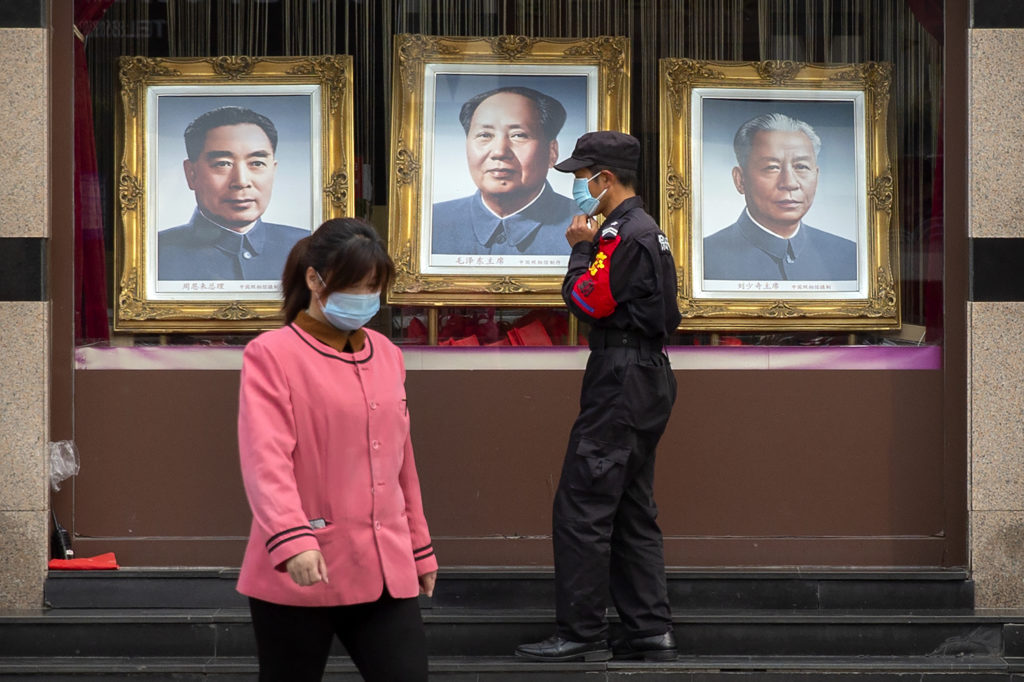“All other possible places of the virus’s origin have been proven to be highly unlikely,” the document reports.
By World Israel News Staff
A U.S. government analysis concludes that a Wuhan laboratory is the “most likely” source of the coronavirus, columnist Bill Gertz writes in The Washington Times on Tuesday.
The document, developed from open sources and still being worked on, says there’s no direct evidence pointing to the Wuhan Institute of Virology or the city’s branch of the Chinese Center for Disease Control and Prevention, Gertz writes.
Still, “there is circumstantial evidence to suggest such may be the case,” the paper says.
“All other possible places of the virus’s origin have been proven to be highly unlikely,” the document reports, a copy of which was obtained by The Washington Times.
Wuhan was ground zero for the pandemic, which quickly spread around the globe, causing the deaths of 218,000 and in the U.S. killing over 58,000, more than U.S. military losses in the Vietnam War.
China claimed that the virus started at a wet market which sold live, exotic creatures for consumption. Bats specifically were fingered as the culprit.
However, the wet market in Wuhan that was pinpointed, the Huanan Wholesale Seafood Market, didn’t sell bats, Fox News reports.
The government analysis says the web market explanation is problematic as the first person diagnosed with Covid-19 had no links to it. That individual has disappeared, causing some to claim foul play and a cover-up, Gertz writes.
The document also says “a number of suspicious actions and a paper trail suggest that the virus escaped from one of the labs,” Gertz reports in the Times.
“The most logical place to investigate the virus origin has been completely sealed off from outside inquiry by the CCP [Chinese Communist Party],” according to the document.
“A gag order to both places was issued on Jan. 1, 2020, and a major general from the PLA who is China’s top military microbiologist essentially took over the [Wuhan Institute of Virology] since mid-January,” it said.
The strongest piece of circumstantial evidence noted by the report is the research of Shi Zhengli, who studied bat coronavirus at the Wuhan Institute of Virology. It’s China’s “only high-security, level four research laboratory,” the Times reports, and was built with the help of Western countries.
The report notes that in 2015, Shi published an academic paper in Nature Medicine co-authored with 14 other scientists who said they had “built a chimeric virus encoding a novel, zoonotic [animal-origin] spike protein… that was isolated from Chinese horseshoe bats.”
The “hybrid virus” gave researchers the ability to study the virus’s ability to “cause disease.”
A medical doctor, Wu Xiaohua, started an online campaign accusing Shi of being responsible. Dr. Wu said Shi used laboratory animals and one may have been the cause of the pandemic, according to the government report.
Dr. Wu claimed “that the institute’s virus-carrying animals had been sold as pets, dead laboratory animals were not properly disposed of, and lab workers were known to boil and eat laboratory-used eggs,” the report says.
“Wu’s charges of WIV management negligence are specific and have not been convincingly rebutted by WIV,” the analysis said.
It has been documented elsewhere that safety procedures were sloppy at the lab. U.S. Embassy officials warned in January 2018 about poor safety protocols, noting in particular risky studies linked with coronavirus pathogens in bats, The Washington Post reported two weeks ago.
U.S. government officials may be growing skeptical of China’s claims.
Secretary of State Mike Pompeo told Fox News on April 15, “What we do know is we know that this virus originated in Wuhan, China. We know there is the Wuhan Institute of Virology just a handful of miles away from where the wet market was. There is still lots to learn. You should know that the United States government is working diligently to figure it out.”


